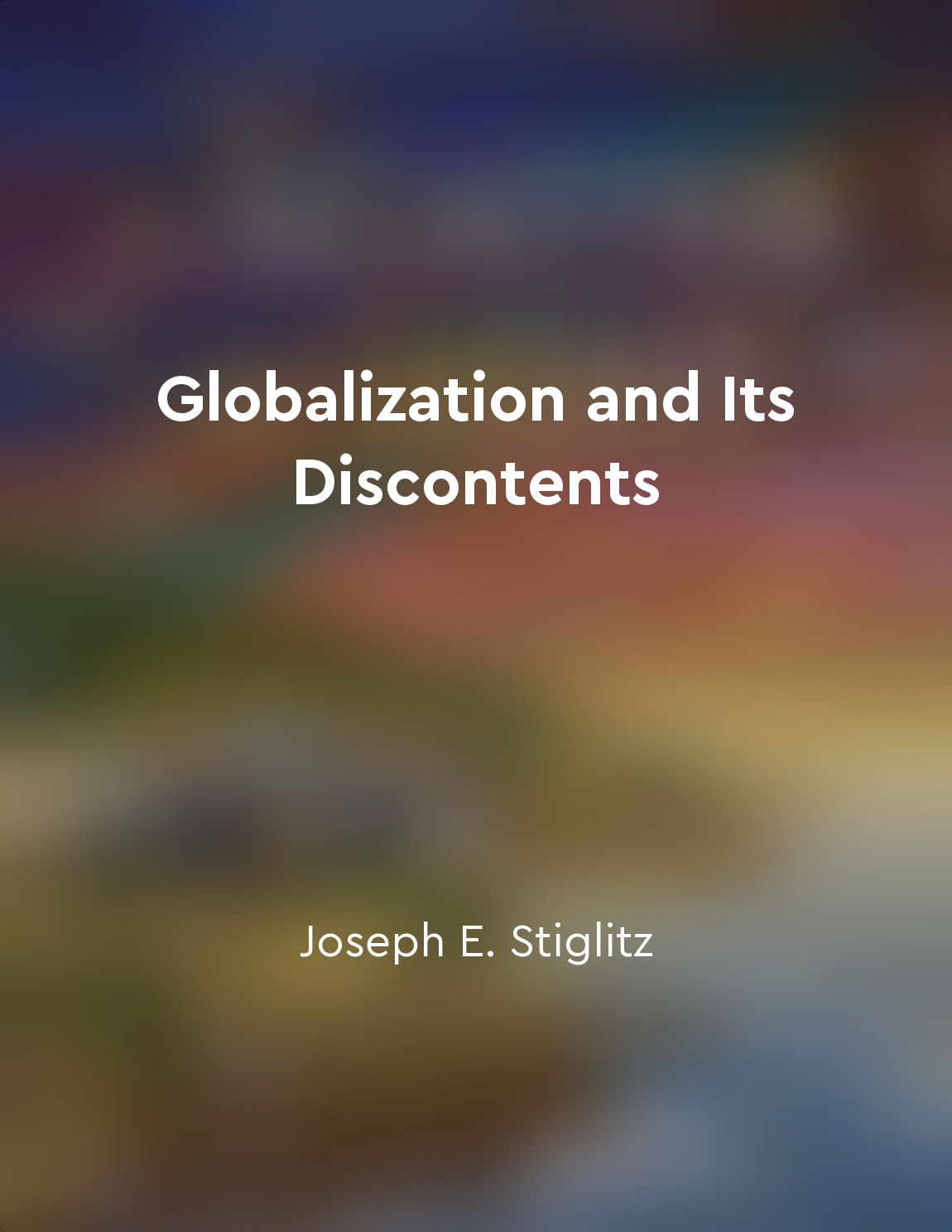Global economic policies should be based on principles of fairness and equity from "summary" of Globalization and Its Discontents by Joseph E. Stiglitz
In the context of globalization, it is essential to consider the principles of fairness and equity when formulating global economic policies. These principles are crucial for ensuring that the benefits of economic integration are distributed equitably among all members of society. Without a focus on fairness and equity, the gains from globalization may disproportionately accrue to a small, privileged elite, leaving the majority of people behind. One of the key challenges in promoting fairness and equity in the global economy is the unequal distribution of power and resources among nations. Developed countries often have more influence over international economic institutions and policies, which can result in policies that benefit them at the expense of developing countries. This unequal power dynamic must be addressed to create a more equitable global economic system. Furthermore, the current approach to globalization often prioritizes the interests of multinational corporations and financial institutions over those of workers, farmers, and other marginalized groups. This can exacerbate income inequality and lead to social unrest and political instability. By prioritizing principles of fairness and equity in global economic policies, policymakers can ensure that the benefits of globalization are shared more equitably among all members of society. In addition, promoting fairness and equity in the global economy can help to address pressing social and environmental challenges. For example, policies that prioritize fair wages and working conditions can help to reduce poverty and improve the well-being of workers around the world. Similarly, policies that promote sustainable development and environmental protection can help to ensure that future generations can enjoy a healthy and prosperous planet.- By basing global economic policies on principles of fairness and equity, policymakers can create a more just and inclusive global economy that benefits all members of society. This requires a commitment to addressing power imbalances, prioritizing the interests of marginalized groups, and promoting sustainable development. Only by embracing these principles can we build a more equitable and sustainable global economy for the future.
Similar Posts

Economic indicators provide insights into the state of the economy
Economic indicators are key tools used by policymakers, economists, investors, and businesses to gain a better understanding of...
Hit men justify their actions as progress
Hit men, the individuals tasked with carrying out the dirty work of economic manipulation, often attempt to rationalize their a...

Financial markets can be volatile and unpredictable
Financial markets, as we have come to understand, are characterized by their volatility and unpredictability. This means that t...

The voices of marginalized communities must be heard in global debates
The idea that marginalized communities must have a seat at the table in global discussions is critical. Without their perspecti...
Discuss the importance of preserving historical artifacts and sites
Preservation of historical artifacts and sites holds immense significance in understanding and appreciating the past. These rel...

Globalization's impact on class structure
Globalization has fundamentally reshaped the class structure in modern society. The rise of a global economy has led to the eme...

